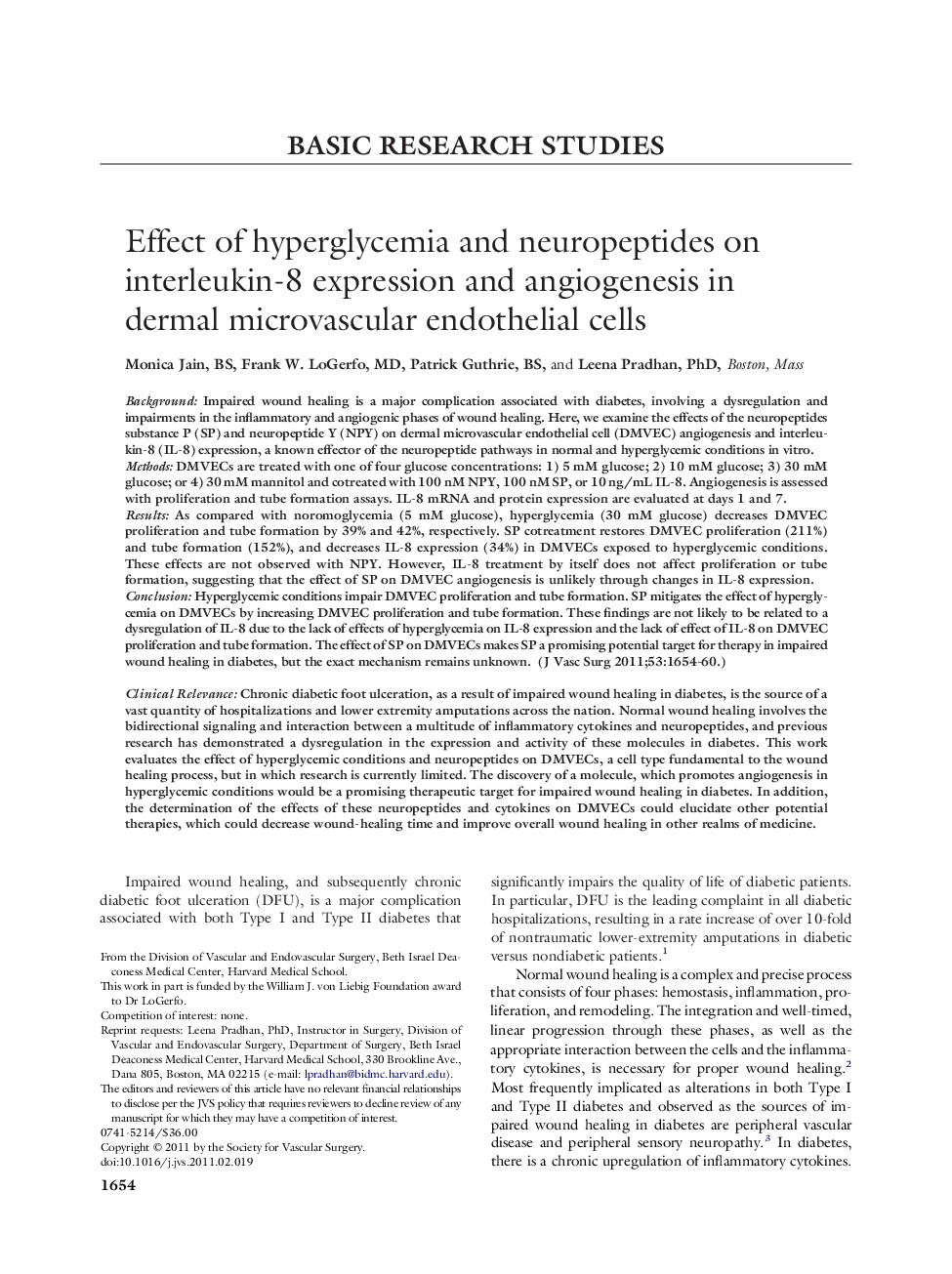| Article ID | Journal | Published Year | Pages | File Type |
|---|---|---|---|---|
| 2992670 | Journal of Vascular Surgery | 2011 | 9 Pages |
Abstract
Chronic diabetic foot ulceration, as a result of impaired wound healing in diabetes, is the source of a vast quantity of hospitalizations and lower extremity amputations across the nation. Normal wound healing involves the bidirectional signaling and interaction between a multitude of inflammatory cytokines and neuropeptides, and previous research has demonstrated a dysregulation in the expression and activity of these molecules in diabetes. This work evaluates the effect of hyperglycemic conditions and neuropeptides on DMVECs, a cell type fundamental to the wound healing process, but in which research is currently limited. The discovery of a molecule, which promotes angiogenesis in hyperglycemic conditions would be a promising therapeutic target for impaired wound healing in diabetes. In addition, the determination of the effects of these neuropeptides and cytokines on DMVECs could elucidate other potential therapies, which could decrease wound-healing time and improve overall wound healing in other realms of medicine.
Related Topics
Health Sciences
Medicine and Dentistry
Cardiology and Cardiovascular Medicine
Authors
Monica BS, Frank W. MD, Patrick BS, Leena PhD,
